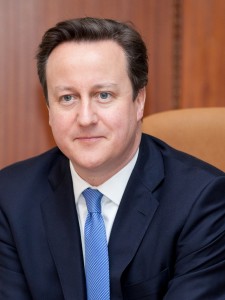Edward Leigh – 2023 Speech on the Budget
The speech made by Sir Edward Leigh, the Conservative MP for Gainsborough, in the House of Commons on 20 March 2023.
I am delighted to follow my hon. Friend the Member for Bassetlaw (Brendan Clarke-Smith) in praising the Government for bringing a nuclear fusion site to West Burton. As I have already said, it is not 5 miles from Gainsborough—indeed, Gainsborough is the closest town. I very much hope that the Minister will support my campaign to rename the site the “Gainsborough West Burton” site.
Gainsborough was at the heart of the industrial revolution in the 19th century, bringing in new products. This site is a chance for us to go with the flow through a brand new technology. We want to create apprenticeships and to involve the whole region. I really want to make that clear. Gainsborough is an industrial town with traditionally high levels of employment. I am delighted that the Government have given us £10 million in levelling-up funds. We are grateful to the Secretary of State for Levelling Up, Housing and Communities for giving that to Gainsborough South West ward—the 27th most deprived ward in the entire country.
However, there is no point one hand of the Government giving us £10 million in levelling up if the other hand is potentially taking £300 million of investment away from my constituency. As I mentioned in Home Office questions today, we have developed a wonderful deal for RAF Scampton—home of the Dambusters and the Red Arrows—creating heritage, a spaceport, a hotel and industry. The whole thing is at risk because the Home Office is now marching in and threatening to put 1,500 migrants there. This has nothing to do with the fact that they are migrants or not migrants; it is about the fact that we cannot develop the site, which is relatively developed now, if it is held by the Home Office for two years. Levelling up is at the heart of this Budget. We must have co-ordinated government—co-ordination between the Home Office, the Ministry of Defence and the Department for Levelling Up, Housing and Communities.
I want to make a more general point. Thatcherites such as myself are always banging on about the need for tax cuts. There is no point in our doing that if we are not controlling public spending. Of course I regret that corporation tax is going up, but I recognise that the public finances are in a state of crisis. I really encourage Ministers on the Front Bench to redouble their efforts to ensure that there is efficiency and economy in our public services; I speak as a former Chairman of the Public Accounts Committee.
There is still grotesque waste throughout the public sector. I am now on the sponsor board of the restoration and renewal programme: hundreds of millions of pounds have been wasted on doing nothing to renovate the building where we are now—years wasted! It is a small point, but I read in the newspapers that we are already spending about £100 million on the covid inquiry, hiring hundreds of lawyers. Right through the public sector, we rely on the Chief Secretary of the Treasury to ensure that we get good value for money.
One of the ways in which we will eventually make the public sector work better is through more of a sense of self-reliance. I do not want to make further points about the triple lock, because I will get into trouble if I criticise it in any shape or form—it is very politically difficult—but the Government must have a strategy to deal with it. The ideas developed by Peter Lilley when he was Secretary of State are exciting and interesting.
We cannot just go on having a national health service that consumes an ever larger proportion of national income but is riddled with waste and incompetence and delivers worse and worse outcomes. We have to be prepared and have the political courage to learn from countries such as Australia, France and New Zealand, which have a mix of public and private provision that ensures that they have what are frankly much better health services because they are unleashing people’s enthusiasm to invest in their health. The previous Conservative Government gave tax relief for private health insurance, and we should not dismiss that.
I want to make one more point. Of course we all welcome the extra provision for childcare, but it is a massive extension of the state. It is desirable in itself—I am entirely in favour of mothers who want to work being allowed and encouraged to do so even when their babies are as young as nine months—but we must also support mothers who want to stay at home. The marriage tax allowance was introduced by Nigel Lawson. It was allowed to wither on the vine, and was then reintroduced by George Osborne in 2015, but it is not well-advertised or taken up. It is fairly derisory, and amounts to only about £1,700. If a couple earns £70,000, they are £7,000 worse off as far as the taxman is concerned if the mother stays at home looking after a child and the husband goes to work.
The marriage tax allowance is not just for married couples but for couples in a civil partnership. The Government should be neutral about the fact that, often, it is in the interests of the child and the mother, where the mother wants to do so, for her to be allowed by the tax regime to stay at home and not to be forced by the tax regime or by her personal circumstances to go out and work. A Conservative Government believe in choice, and that is what I want to impress on the Government.



